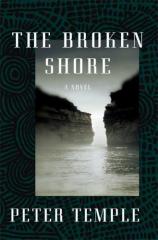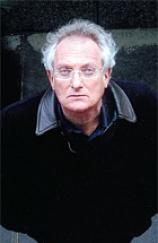Reading Group Guide
Discussion Questions
The Broken Shore

1. Why does Joe Cashin decide to take a chance on Dave Rebb in the initial chapters? Is Joe a better judge of character than Mrs. Haig, or was he simply taking a gamble?
2. How are Joe and Michael affected by the Cashin family legacy? In what way does Joe’s understanding of his father and of Tommy shift throughout the novel?
3. What do you think happened on the night of the shootout? Would you have been more likely to trust Hopgood or Donny?
4. How has Joe’s community changed since his boyhood? What enabled Bobby Walshe and Helen Castleman to excel in careers that would previously have been closed to Aboriginals and women? How does Joe view his connection to Bobby and Helen now that they are adults engaged in high-stakes circumstances?
5. Discuss the novel’s title. How does the beautiful but dangerous segment of coastline called the Broken Shore serve as an appropriate backdrop for the Bourgoyne murder investigation? What has been broken at the Kettle and the Dangar Steps? Whose broken lives are mended in the aftermath?
6. How were you affected by the structure of the novel, featuring brief chapters comprising rapid-fire dialogue and almost cinematic visuals? What made The Broken Shore different from other thrillers you have read?
7. The novel features a glossary of Australian slang, with many of the entries describing various types of people. How does English-language slang vary around the globe, and what does a population’s slang indicate? What were you surprised to discover about Australian culture? What commonalities exist between the dialogue of Australian and American crime novels?
8. How did race and class influence the way the case was handled? Without Joe’s intervention, would the truth have likely been discovered? In what parts of the world do race and class play the greatest role in how justice is served? How are neighborhoods like the Daunt born?
9. Who was your prime suspect? Were you more swayed by evidence or instinct? Whom did you trust the least?
10. What does Jamie’s story indicate about the nature of abuse? Why is evil sometimes allowed to flourish? What allowed this particular evil to affect multiple generations?
11. Why was Jamie’s sister hesitant to reveal the truth? What realities was she trying to perpetuate? What would you have done in her situation?
12. In the end, Erica decides not to sell the camp to Fyfe, putting an end to the resort project. What did this clash between the old guard and new developers indicate about views of the ideal life in this region? How is progress truly defined, in housing, law enforcement, and other aspects of community?
13. How did you interpret the novel’s closing scene? What do you predict Tracy will find after she follows through on Joe’s research request regarding the summer of 1988?
14. Just as literature and opera helped Joe recover from the incident with Raimond Sarris, what emotional repairs are accomplished through the repair work on Tommy Cashin’s house?








